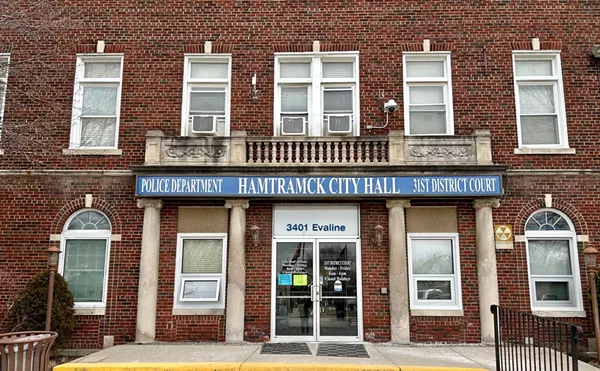
Audio By Carbonatix
[
{
"name": "GPT - Leaderboard - Inline - Content",
"component": "35519556",
"insertPoint": "5th",
"startingPoint": "3",
"requiredCountToDisplay": "3",
"maxInsertions": 100,
"adList": [
{
"adPreset": "LeaderboardInline"
}
]
}
]
I only met her once, but that single encounter was enough to make the news of Marilynn Rosenthal's death feel like a personal loss. Some people can have that kind of effect.
It was almost exactly a year ago that I sat down with Rosenthal for an afternoon in her Ann Arbor home to talk about a book she was working on. Rosenthal's son Josh, himself a remarkable man, died in the World Trade Center the morning of Sept. 11, 2001, and Marilynn's response was to try to make some sense of the tragedy by writing about the lives of both her son and one of the terrorists who murdered him.
Our story about the Rosenthals ("In her son's name," MT, Sept. 6, 2006) took the form of an oral history, with Marilynn explaining what drove her to delve into the life of Marwan al-Shehhi, the 23-year-old jihadist from the United Arab Emirates who flew a Boeing 767 into the WTC's south tower.
Marilynn, who died earlier this month of cancer at the age of 77, had a long and distinguished career as an academic. A former Fulbright scholar, she was a social scientist who specialized in medical issues. She served as director of the Health Policy Studies program at University of Michigan-Dearborn for more than a decade, and was associate director of the University of Michigan Medical School's Society and Medicine Program. Her work had been published numerous times over the years, but nothing compared to the 9/11 book she worked on for more than five years, a combined biography of Josh and al-Shehhi.
Josh, a senior vice president for the firm Fiduciary Trust International, managed pension portfolios; al-Shehhi had moved to Germany while in his early 20s on a scholarship to study shipbuilding with the intent of becoming a military officer. It was while living in Hamburg that al-Shehhi became an acolyte of radical Islam. And in the stories of these two men, Rosenthal saw the embodiment of two cultures in conflict, two globalized movements — capitalism and radical religious fundamentalism — that literally collided at the moment both men met their deaths.
"I began to see Marwan and the other guys who did this as true believers," she told me. "That is, they think their way of understanding the world is the only way to understand the world. And they feel so strongly that they are willing to die for it. So this pilot, who is a murderer and a martyr, depending on who's describing him, was essentially a true believer."
What drove her was the need to understand.
"I tried to hold myself to as high a standard of research as I could," she said. "I didn't take anything from any one source. Several different places gave me copies of the interrogation files produced by the German intelligence office, the BKA. And they interviewed everybody who knew the Hamburg group of hijackers. ... And I confirmed for myself how complex everything is. The old saw 'the more you know, the more you know you don't know' — I think that got validated."
Her quest for understanding took her to the United Arab Emirates, where she met with members of al-Shehhi's extended family. In seeking information about the man, she wasn't trying to find in herself a way to forgive. Instead, she was motivated by the belief that unless you try to understand what motivates a person to commit an atrocity like the one that occurred on 9/11, if all you seek is retribution, then the end result will only be the creation of more fanatics.
"I'm not trying to justify what he did," she said. "He's a murderer. But if you just hate them, and you don't try to understand, all you do is perpetuate the hate and the wars and the killing over and over again."
What came across during that interview was not just how rational she was in the face of grief, but also her strength.
That same sort of strength was displayed in April 2006, when she testified in the penalty phase of so-called "shoe bomber" Zacarias Moussaoui's trial. She told reporters afterward that she believed that, although he was a member of al-Qaeda, Moussaoui had no involvement in the 9/11 attacks, and that his prosecution was a sham. Given the bloodlust fomented by an administration that she believed misled this country into its war against Iraq, Rosenthal certainly must have known that she was opening herself to personal attacks from hate-mongering right-wingers, but she didn't let that stop her. And those attacks did come, but she remained unfazed.
As I think back on our interview, and the things we discussed that day one year ago, it is that sort of strength of character that sticks with me, the strength that allows a person to search for the truth, and to speak it, no matter what the consequences. It is easy to be blinded by grief and hate, but in her reaction to Josh's death Marilyn Rosenthal taught us all how we can rise above those emotions and use our intellect to take us to a higher ground.
I also remember how reluctant she was to have her picture taken. Others stories had been written abut her, and she didn't want another that focused on her as the mother of a victim. Instead of one individual's loss, what was important to her was that the discussion be about her research, and what she'd found, and the conclusions to be drawn from that.
She also saw the article as a way to draw attention to the annual lecture established in her son's name at U-M's Gerald R. Ford School of Public Policy. The Rosenthal lectures were created to explore issues of terrorism, radical religious fundamentalism, and larger issues surrounding strife in the Middle East. It was important, she said, that these lectures reflect a variety of viewpoints. This year, Larry Cox, executive director of Amnesty International USA, will talk about the issue of human rights in the post-9/11 world. That lecture will be held Tuesday, Sept. 11, at 4 p.m. at U-M's Rackham Auditorium
There remains another legacy — Rosenthal's book. Although yet unpublished, her daughter Helen has said she hopes to fulfill her mother's desire for the manuscript to make it into print and will be searching for a publisher.
I have no doubt that her book will one day sit on my bookshelf, a reminder that even though the lives of those who a seek truth and understanding are transient, the light that they bring into this world continues to shine long after they are gone.
Curt Guyette is Metro Times news editor. Contact him at 313-202-8004 or cguyette@metrotimes.com




